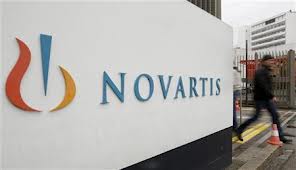
 R Viswanathan, Business Unit Head-Healthcare, PCS Technology
R Viswanathan, Business Unit Head-Healthcare, PCS Technology
What were some of the key challenges that the health IT sector faced in 2012?

One of the biggest challenges for the health IT sector is that except few corporate hospitals, the healthcare industry does not plan budget for IT. The IT budget of any new hospital should ideally be around 4-6 percent of overall hospital budget, but in reality it is less than 2 percent. Another challenge is
the dearth of qualified staff in ICT, which results in poor implementation of best practices. Moreover, since the benefit of IT is not tangible till some point of time, the overall confidence to invest in IT is low as against investing in equipments.

A majority of hospitals that are considering Hospital Information System (HIS) applications, limit their scope to admission, billing and revenue cycle management. Hence, the purpose of IT automation gets defeated with local vendors aiming to gain short-term benefits. Creation of EMR/PHR is still a long way to go in India since very few clinicians/nurses have started using hospital software for noting their patients clinical records.

What changes you have noticed in healthcare in the year 2012 in areas like Health IT, Medical Equipment, and Regulations etc?

One remarkable change was more government initiatives on various healthcare schemes and allocation of additional budget for ICT. Also, hospitals showed more willingness to adopt IT automations compared to previous years. They started looking for turnkey solution or single vendor for all their IT requirements. In terms of regulations, the number of hospitals applying for accreditation was on the higher side in 2012 as compared to the previous three years. The overall growth of insurance and corporate tie-ups forced many hospitals to look for proper IT software. Another positive trend was the increasing presence of professional administrators, finance heads and CIOs in hospitals.
What are the prospects of growth for the health IT market in 2013?
The Venture Capital Funding will get a major boost in 2013. Mergers and acquisitions by major corporate hospitals will drive the IT automation in India. Health information management companies will continue to receive major funds. With growing patient awareness, the diagnostics market will experience major growth and tier-II and tier-III cities will adapt to IT in a big way. Practice Management will have high potential in the coming year with more and more clinicians moving towards creating EMR. There will be major growth in daycare centres. A lot of corporate chains are on the verge of opening their branches in 2013-2014 and chronic segments such as cardiology, endocrinogy, etc, will look for tie-ups to start chain of specialty hospitals across the country.
What are some key areas in Indian healthcare where your company is likely to play a big role in 2013?
We will continue to focus on turnkey solution by providing IT consultancy, HIS, lab information system (LIS) and will also help in the maintenance of the entire IT by providing skilled resources. We have a successful delivery model for multi-location labs and hospitals, and hence will be focusing on them. We shall also be focusing on our middle enterprise which will cater to the mid-sized hospitals looking for core hospital process.
Please tell us about some new and innovative solutions/ technologies that you are planning to introduce in 2013?
We are working on additional modules that can be provided with HIS for big corporate hospitals and for international markets. These include Vehicle Parking System, Medical Gas Pipeline System, Pneumatic Tube System Management, Online Leave Management System for hospital staff. Moreover, we are working with an US based organisation for developing specific clinical modules especially for Oncology, NICU, etc. On technology front, we will be moving towards Rapid Implementation Methodology tool, which will help hospitals in quicker implementation.
What are the top technologies in healthcare that will play crucial role in the year 2013 and beyond?
In 2013, the focus will continue to be on using the existing HIS and retaining the core IT resource. However, cloud computing will gain momentum. The usage of mobiles and tablets will gain momentum, especially among doctors. Smart cards shall be playing larger roles in top hospitals. Above all, integration of HIS, LIS, radiology information system (RIS) and PACS is inevitable in the coming days.
Be a part of Elets Collaborative Initiatives. Join Us for Upcoming Events and explore business opportunities. Like us on Facebook , connect with us on LinkedIn and follow us on Twitter , Instagram.
"Exciting news! Elets technomedia is now on WhatsApp Channels Subscribe today by clicking the link and stay updated with the latest insights!" Click here!
















